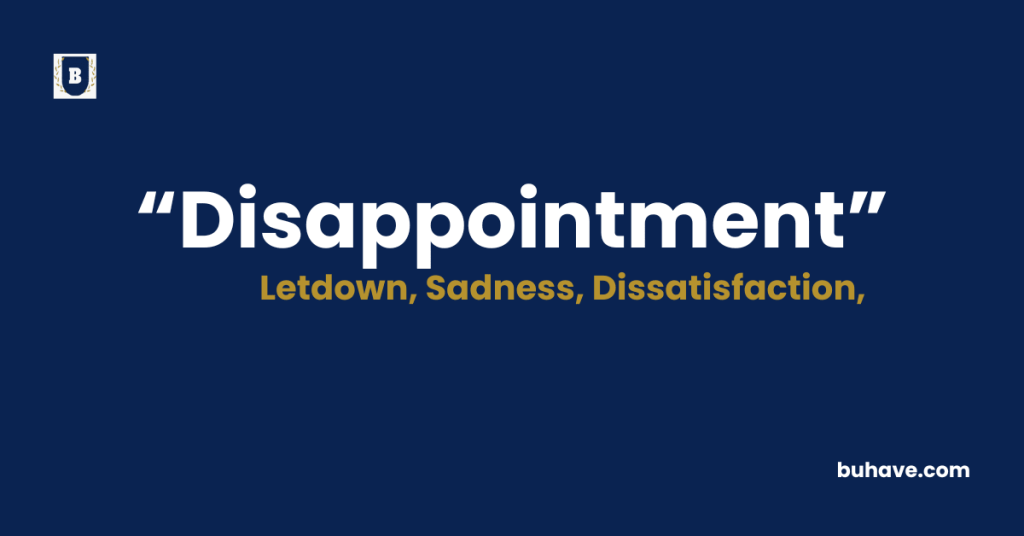The word ‘Disappointment’ (Noun) refers to the feeling of sadness or displeasure caused when expectations or hopes are not fulfilled. In this guide, you’ll explore the full definition, synonyms, antonyms, etymology, and practical examples of how to use ‘Disappointment’ correctly in sentences.
Disappointment Explained in Depth
A complete and detailed guide to the word ‘Disappointment’ including meaning, definition, examples, etymology, synonyms, and antonyms.
Meanings of Disappointment
Disappointment means the emotional response to an unmet expectation or failed hope. It often arises when outcomes don’t meet our desires or when someone or something doesn’t live up to what we anticipated.
Definition
Disappointment is defined as a feeling of sadness, regret, or dissatisfaction that occurs when one’s expectations are not realized. It can also refer to the person or thing that causes such a feeling.
Etymology
The word “disappointment” stems from the Middle French word desapointement, meaning “removal from office.” It evolved from the verb “disappoint,” which comes from Old French desapointer, meaning “to undo an appointment.” Over time, the meaning shifted to reflect emotional letdown rather than formal demotion.
Example Sentences
- She felt a deep sense of disappointment when she didn’t get the job.
- The ending of the movie was a major disappointment for the audience.
- His behavior was a disappointment to his mentors.
Disappointment Synonyms
- Letdown
- Frustration
- Regret
- Disillusionment
- Discontent
- Dissatisfaction
- Dejection
- Discouragement
- Resentment
- Sadness
Disappointment Antonyms
- Satisfaction
- Fulfillment
- Delight
- Happiness
- Contentment
- Joy
- Success
- Pleasure
- Approval
- Excitement
FAQs about Disappointment
Here are some frequently asked questions (FAQs) about the word “Disappointment”
1. Is disappointment an emotion or a reaction?
It is both. Disappointment is an emotional response to a perceived failure or unfulfilled hope, often followed by a reaction such as sadness or withdrawal.
2. Can disappointment be positive?
While it’s a negative emotion, it can lead to growth, learning, or motivation for improvement if handled constructively.
3. What’s the difference between disappointment and regret?
Disappointment is about unmet expectations from others or events; regret is often linked to personal choices or actions one wishes had been different.
4. Can disappointment be prevented?
Managing expectations and practicing acceptance can reduce the frequency or intensity of disappointment.
5. Is disappointment the same as failure?
No. Failure is an outcome; disappointment is the emotional response to that outcome.

















